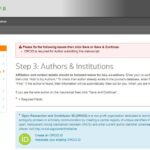Featuring discussions of open scholarship, plain language summaries of publications, support for rapid reviews of COVID-19 preprints, the Arabian Citation Index, the outlook of open access, Brazilian publication policies and a celebration of HighWire.
DORA, the open scholarship explorer via DORA
In a recent blog post, the San Francisco Declaration on Research Assessment (DORA) demonstrates how its recommendations for academia are aligned and becoming intertwined with equity and open scholarship. Although open scholarship does not have a clear definition, at its core is the ideal that the sharing of knowledge at the earliest steps of research is beneficial to all stakeholders. The blog post lists several key distinctions between open scholarship and DORA but ends by emphasizing their shared goal: “quality research that enriches all of humanity”.
Reaching patients with plain language summaries via Future Medicine
This week, Future Oncology, part of Future Science Group, published its first plain language summary of publication (PLSP). The PLSP summarizes the results of a phase 3 study of pexidartinib targeting tenosynovial giant cell tumours and contains background information on both the disease and drug in question. Additionally, the article is peer-reviewed and available open access, providing true accessibility to all non-specialist readers.
Rapid support for rapid reviews via Hindawi
In last week’s digest, we discussed the steps taken by Rapid Reviews: COVID-19 to tackle the spread of misinformation. Now, it has reported a milestone of 20 participating organizations. With 20 organizations, including Cambridge University Press, Springer Nature and UCL Press supporting this journal, it is clear that commitment to accurate and timely reviews of preprints has never been stronger. In a post-pandemic world, this co-operation between publishers could be vital in ensuring the success of medical preprints.
Learn like an Egyptian via Clarivate
The Arabic Citation Index (ARCI), launched by Clarivate, aims to provide local scientific communities with the ability to contribute to research efforts from a regional to an international level. Funded by the Egyptian government, ARCI will provide researchers with access to bibliographic information and citations on the Web of Science platform to facilitate the extension of the Arabic academic footprint. This progressive development is a part of the innovative Egyptian Knowledge Bank Project, which seeks to spread the culture of knowledge and learning within Egypt.
A rallying cry for open access support via Scholastica
Brian Cody (Co-Founder and CEO, Scholastica) suggests that two of the three blockades to open access have already been surpassed, with both the tools and the money needed for open access publishing available and ready for mobilization. Brian goes on to suggest that the last obstacle between the scientific publishing community and open access is the will of the people. He poses that we need more academic-led publishing where the power lies in the hands of academics rather than corporate publishers. By challenging the status quo, Brian believes that we can utilize the existing tools and money to reach the openness ideal.
Brazilian publication profiles – a case study via SciELO
Researchers in Brazil have created an extensive analysis of the current publication standards, with the aim to influence publication policies and predict future publication trends. This was led by Concepta McManus (Professor at the University of Brasília) and includes insights into where Brazilian authors publish, citation impact and preference for journals with different open access statuses. While there seems to be a sway towards subscription publishing, this analysis provides ample actionable information to be used to develop sound financial models to improve the accessibility and discoverability of Brazilian science.
25 years of HighWire – via HighWire
To celebrate their 25th anniversary, digital publishing platform HighWire sat down with Richard Sever (Co-founder of bioRxiv and medRxiv) to discuss how its submission technology had been harnessed to create leading preprint servers. Richard reminisces about the shift to digital publishing in the late 1990s, and how HighWire became a key player in facilitating this process. Over two decades later, Richard recalls how HighWire was adapted to create an effective preprint server for biological research, bioRxiv, and more recently, a HealthScience preprint server, medRxiv. The discussion culminates with an evaluation of the challenges that preprint servers face beyond COVID-19.
We at Open Pharma would like to continue to encourage all our readers to look after themselves and their community and continue to follow advice from their country’s government and health organizations.
Coronavirus mental health and wellbeing resources:






